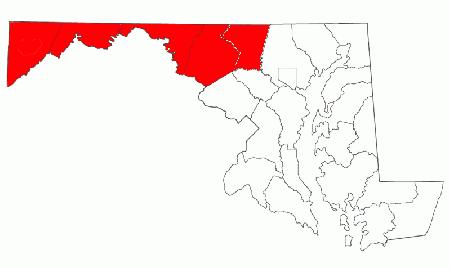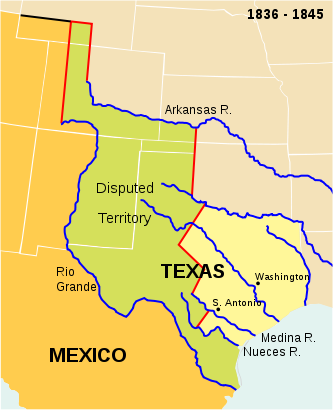The 51st State, Western Maryland: How to succeed without seceding
By Barry Rascovar
For MarylandReporter.com
The mountain natives are restless in Maryland. They want to have it their way, though they represent just 10 percent of the state’s population.
Here are a few things that annoy them:
- A stream of tax increases (including one on rain!) from Annapolis.
- State restrictions that devalue their land.
- Tougher gun-control laws.
- A bleeding-heart law that does away with the death penalty.
- A state law legalizing gay marriages.
- Political map-makers who deprive them of their conservative congressman.
It’s enough to make you want to secede, which is the plan put forth by a Carroll County blogger, Scott Strzelczyk of New Windsor, for the five counties often lumped together as Western Maryland.
The verb “to secede” is a curious term not to be confused with the similar-sounding verb “to succeed.”
Indeed, were the five western counties to secede from Maryland, there would be no chance for that movement to succeed.
It won’t happen
Here’s why.
- The 51st state: Western Maryland would be the third smallest by population (less than 660,000). Only Wyoming and Vermont would have fewer residents.
- It would be a state divided between “haves” and “have nots.” Under-populated and impoverished Garrett and Allegany counties would be heavily outvoted by the far more crowded, well-off jurisdictions to the east. As the French say, “the more things change, the more they stay the same.”
- It would be one of the most homogeneous states, close to 90% white with few African Americans or Latinos. Nearly everyone would be Christian, too.
- It would be filled with non-productive residents. Folks of retirement age and children 18 years or younger would constitute over 40% of the population.
- –Two wealthy counties – Carroll and Frederick – would be forced to support the other three jurisdictions that have high unemployment (Washington County’s jobless rate, for instance, stands at 8.4%).
- The five counties would lose $622 million in direct Maryland school aid and a lot more Maryland aid earmarked for other social programs. Yet these jurisdictions only produce $326 million in income tax revenue.
Too many economic barriers
How can secessionists afford to cut taxes? How will they pay for essential services without raising what they claim is an already onerous tax burden?
The numbers don’t add up.
The state of Western Maryland would lack a sound employment base.
Moreover, all the thousands of Maryland government jobs in the five counties (especially in the many state prisons) would disappear under secession.
It’s an idea whose time will never come.
Numerous states have secession movements
 Rural counties elsewhere want to try the same thing.
Rural counties elsewhere want to try the same thing.
In August, Siskiyou County (population: 44,000) voted 4-1 to secede from California. It wants to join with southern Oregon rural counties to form the new state of Jefferson.
Their movement, Defend Rural America, started way back in 1941. Secessionists even designed a flag with two Xs – signifying the double-cross of rural residents by the two states.
Their complaints echo what is heard from rural Marylanders:
Urban legislators are attacking our way of life. No one with power listens to our complaints and concerns. Our constitutional rights are being taken away. Land-use laws are depriving us of our wealth. Our religious and cultural beliefs are being undercut.
Colorado has its own secession movement. Six counties vote in November on creating the state of North Colorado.
They hope to be joined by like-minded counties in Kansas and Nebraska.
In Michigan, residents in the Upper Peninsula feel isolated and unappreciated and want to secede.
In New York, politicians have proposed various secessions for New York City, Long Island, conservative parts of the Big Apple and upstate New York.
In California, partition proposals frequently surface. In 1965, the state Senate voted 27-12 to split the Golden State in two.
In Texas, the independence movement remains active. The Texas Nationalist Movement claims 250,000 members, though its website reminds seniors that under secession they’ll still receive their U.S. Social Security checks.
Disillusioned and disenfranchised
What binds these movements is disillusionment and a feeling of disenfranchisement. America is changing and they don’t like it.
Urban and increasingly dense suburban communities control state legislatures. Residents there are growing more polyglot. What was once a white, church-going nation of farmers and small merchants is no more.
The battle to preserve and protect rural America really was lost in 1787.
That’s when urban Federalists led by Alexander Hamilton had the votes to write a Constitution creating a strong central government. This sealed the fate of Jefferson’s agrarian republic in which states would hold the power to define and defend individual rights and liberties.
Pockets of discontent with the governance structure championed by Hamilton and Washington have never disappeared. The only movement that achieved its goal was the breakaway of 50 pro-Union northwestern counties from Virginia during the Civil War to establish West Virginia in 1863. (Few landowners in mountainous western Virginia had slaves.)
Texas also seceded, but from Mexico, gaining its independence in 1836.
Nine years later, in 1845, the Republic of Texas voted to join the United States.
Three options to consider
For those unhappy with the current state of affairs in Maryland, there are three realistic options to consider.
1. Move
That’s been the answer for many discontented Americans. Religious minorities that felt persecuted sought greener pastures. Those wishing to control their destiny or start a new life moved into the western frontier.
There are plenty of states where strong conservative views predominate. Pick one and live there.
2. Stay and complain.
Shout at the top of your lungs at public gatherings. Write angry letters to the editor. Vent your spleen on blog posts.
None of this helps achieve your objective. In fact, it turns off the electorate and leaders who count.
But it is salutary and a form of therapeutic self-expression.
3. Stay and fight.
People with deeply held libertarian or conservative views probably will never be in the majority in Maryland.
Still, they have a shot at influencing public policy with thoughtful, innovative ideas and a willingness to debate, explain, compromise and work collaboratively with those in power. Incremental steps add up over time.
It comes down to whether you want to make a difference or make a statement.
In this country, thank goodness, the choice is yours.

MarylandReporter.com is a daily news website produced by journalists committed to making state government as open, transparent, accountable and responsive as possible – in deed, not just in promise. We believe the people who pay for this government are entitled to have their money spent in an efficient and effective way, and that they are entitled to keep as much of their hard-earned dollars as they possibly can.



